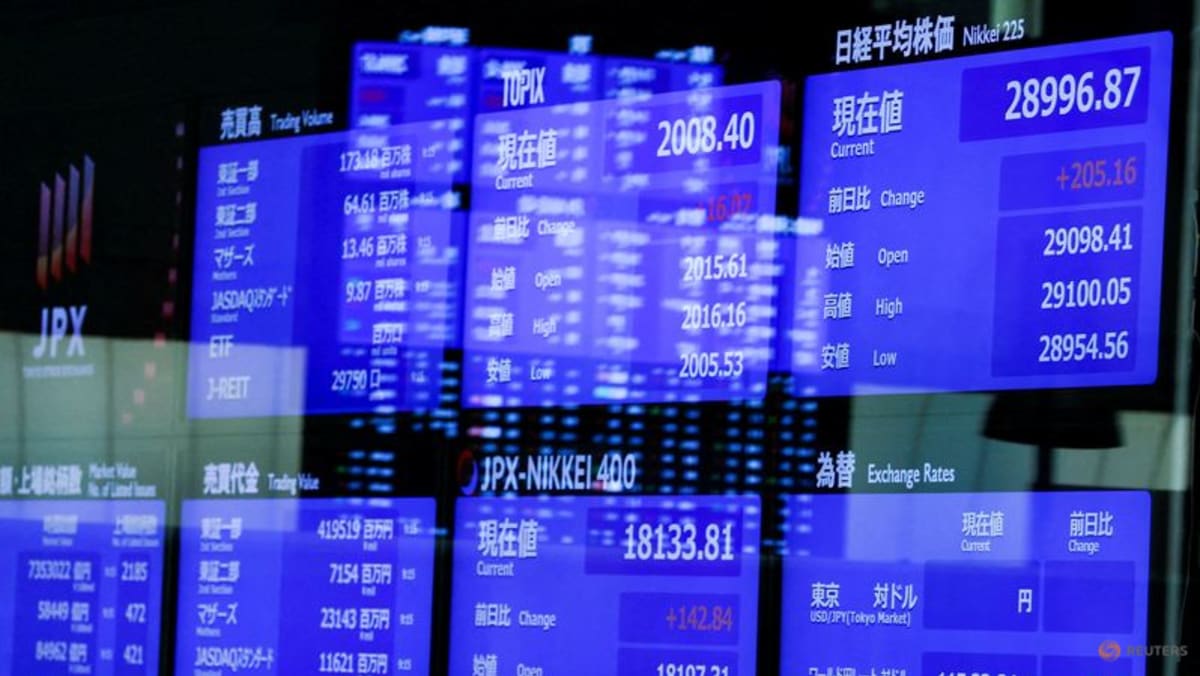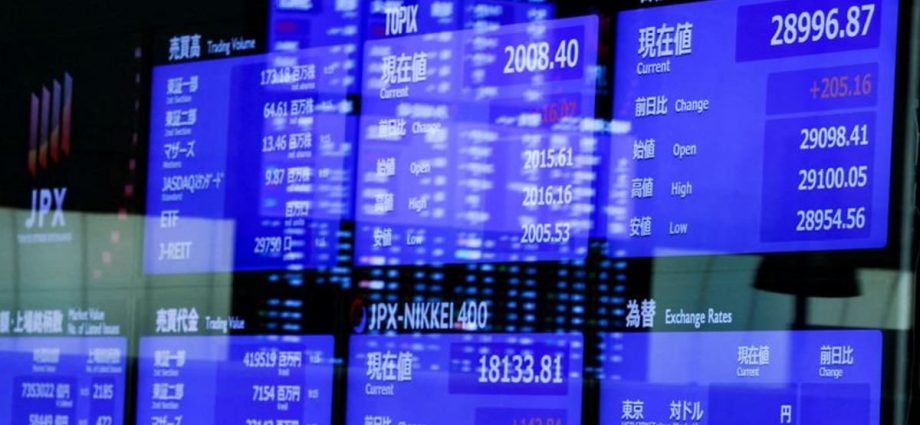
However, the developments sent shivers through Asian markets as memories of the 2008 global financial crisis came flooding back.
Among banks, Japan’s Sumitomo Mitsui Financial and Mitsubishi UFJ Financial shed more than 2 per cent apiece, while South Korea’s Hana Financial Group gave up more than 3 per cent and HSBC dropped 3 per cent.
Broader markets were also in the red.
Hong Kong gave up 1.7 per cent, while Tokyo, Sydney, Shanghai, Seoul, Singapore, Bangkok, Taipei, Manila and Jakarta were also well down.
“Fear has once again gripped the markets, concerned about a repeat of past crises – one in particular, for obvious reasons – and the implications for the financial system and the global economy,” said OANDA’s Craig Erlam.
“Of course, this is natural when so little is known about the situation and what it ultimately means for the health of the rest of the system.
“In the absence of facts, everyone is left with little choice but to speculate and frankly, what little commentary we’ve had hasn’t really helped. Quite the opposite, in fact.”
However, the developments sent shivers through Asian markets as memories of the 2008 global financial crisis came flooding back.
Among banks, Japan’s Sumitomo Mitsui Financial and Mitsubishi UFJ Financial shed more than two percent apiece, while South Korea’s Hana Financial Group gave up more than three percent and HSBC dropped three percent.
Broader markets were also in the red.
Hong Kong gave up 1.7 per cent, while Tokyo, Sydney, Shanghai, Seoul, Singapore, Bangkok, Taipei, Manila and Jakarta were also well down.
“Fear has once again gripped the markets, concerned about a repeat of past crises – one in particular, for obvious reasons – and the implications for the financial system and the global economy,” said OANDA’s Craig Erlam.
“Of course, this is natural when so little is known about the situation and what it ultimately means for the health of the rest of the system.
“In the absence of facts, everyone is left with little choice but to speculate and frankly, what little commentary we’ve had hasn’t really helped. Quite the opposite, in fact.”

